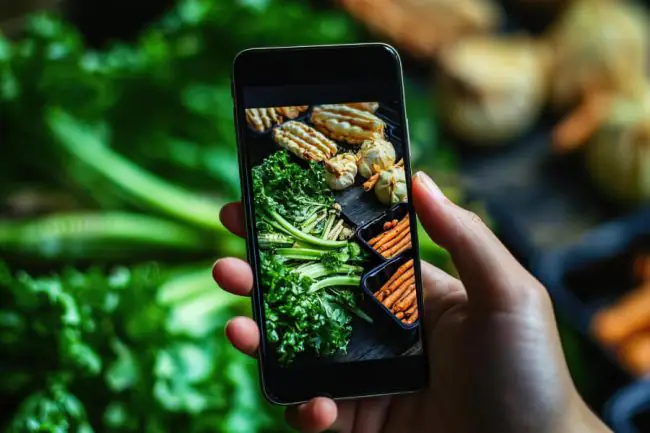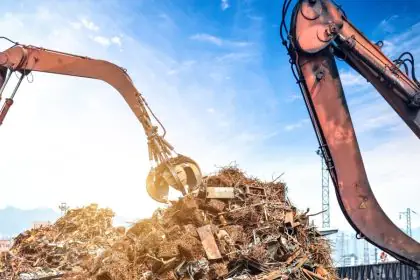Reducing food waste is a powerful step toward creating a more sustainable kitchen and, ultimately, a healthier planet.
By being mindful of how we purchase, store, and consume food, we can make significant strides in minimizing waste and promoting sustainability.
The Environmental Consequences
Food waste is more than just an economic issue; it’s a significant environmental problem. When food is wasted, all the resources used in producing, transporting, and storing that food are also wasted.
When food waste ends up in landfills also, it produces methane—a potent greenhouse gas that contributes to climate change.
Economic Implications
Beyond the environmental impacts, food waste has serious economic consequences. Households that waste food are essentially throwing away money. By reducing food waste, you can lower your grocery bills and contribute to a more sustainable economy.
Practical Strategies to Minimize Food Waste
Reducing food waste doesn’t have to be difficult. With a few adjustments in your kitchen habits, you can make a big difference. Here are some expert tips to help you get started:
Tip 1: Proper Meal Planning and Inventory Management
One of the most effective ways to minimize food waste is through proper meal planning and inventory management. By planning your meals in advance, you can buy only what you need and avoid impulse purchases that often lead to waste.
- Make a shopping list: Stick to it to avoid buying unnecessary items.
- Check your pantry: Before shopping, see what you already have at home to prevent buying duplicates.
- Plan your meals: Use perishable items (meat, poultry, fish, eggs, dairy products, cooked leftovers any fruit or vegetable that has been cut or chopped) early in the week to reduce spoilage.
Tip 2: Utilizing Leftovers Creatively
Leftovers don’t have to be boring. With a little creativity, you can turn yesterday’s dinner into today’s delicious meal.
- Repurpose leftovers: Use leftover vegetables in a stir-fry, or add cooked pasta to a soup.
- Freeze for later: If you know you won’t eat leftovers within a day or two, freeze them for a future meal.
- Get creative: Challenge yourself to create new dishes from what you have on hand. A leftover roast chicken can become a hearty chicken salad or a filling for tacos.
Tip 3: Implementing Smart Storage Solutions
Proper storage is key to extending the life of your food. Understanding how to store different types of food can significantly reduce waste.
- Use airtight containers: These help keep food fresh for longer.
- Store fruits and vegetables properly: Some fruits release ethylene gas, which can speed up the ripening of nearby produce. Keep these fruits separate from vegetables to prevent spoilage.
- Label and date: Label your leftovers and perishables with the date to ensure you use them before they go bad.
Tip 4: Composting and Recycling Organic Waste
Not all food waste is avoidable, but you can still minimize its environmental impact through composting.
- Start a compost bin: Composting turns organic waste into nutrient-rich soil, perfect for gardening.
- Recycle organic waste: If composting isn’t an option, check if your community has an organic waste recycling program.
Innovative Approaches Towards Waste Reduction
Innovative approaches can further help reduce food waste and make your kitchen more sustainable.
Exploring Food Preservation Techniques
Preserving food can extend its shelf life and reduce the likelihood of waste.
- Canning and pickling: These methods allow you to preserve fruits and vegetables for months.
- Dehydrating: Remove moisture from fruits, vegetables, and even herbs to extend their shelf life.
- Freezing: Almost anything can be frozen, from fresh produce to cooked meals.
Integrating Technology for Kitchen Efficiency
Technology can be a great ally in reducing food waste.
- Smart refrigerators: Some models can track expiration dates and suggest recipes based on what’s inside.
- Apps for meal planning: Numerous apps can help you plan meals, manage grocery lists, and even track what you have in your pantry.
- Food sharing platforms: These platforms connect people with excess food to those who need it, reducing waste and helping the community.
Collaborating with Community Initiatives
Community initiatives can offer support and resources to help you reduce food waste.
- Food sharing groups: Join or start a group in your community where people can share excess food.
- Food banks: Donate non-perishable items you know you won’t use before they expire.
- Community gardens: Participate in or support local gardens that provide fresh produce to the community.
How to Make Eco-Friendly Choices for a Sustainable Living
Reducing food waste is just one part of living sustainably. Here are some ways to extend your eco-friendly efforts beyond the kitchen:
Emphasizing the Impact of Consumer Choices
Every purchase you make has an impact. By being mindful of what you buy, you can reduce waste and support sustainable practices.
- Choose sustainable products: Look for items with minimal packaging or made from recycled materials.
- Buy local: Supporting local farmers reduces the carbon footprint associated with transporting food long distances.
- Opt for quality over quantity: Investing in high-quality, durable products means you’ll need to replace them less often.
Promoting Responsible Consumption Habits
Responsible consumption is key to reducing waste.
- Buy only what you need: Resist the urge to buy in bulk unless you’re sure you’ll use it all.
- Reduce, reuse, recycle: Follow the three Rs to minimize waste in all areas of your life.
- Educate yourself and others: Share what you learn about sustainability with friends and family to inspire them to make changes, too.
Conclusion
Reducing food waste in your kitchen is a powerful way to contribute to a healthier planet and a more sustainable lifestyle. By incorporating the tips and strategies outlined in this guide, you can minimize waste, save money, and promote eco-friendly habits in your daily life. Remember, every small step counts, and together, we can make a significant impact on reducing food waste and protecting our environment.
FAQs
How to reduce food wastage in the kitchen?
Reduce food wastage by planning meals, storing food properly, using leftovers creatively, and composting organic waste.
How can I make my kitchen more sustainable?
Make your kitchen more sustainable by reducing food waste, using energy-efficient appliances, and choosing eco-friendly products.
How can we be sustainable with food waste?
Be sustainable with food waste by buying only what you need, repurposing leftovers, and composting or recycling organic waste.
What are 10 ways to reduce food waste?
- Plan meals ahead of time.
- Make a shopping list and stick to it.
- Store food properly to extend its shelf life.
- Use leftovers creatively.
- Compost organic waste.
- Freeze food to prevent spoilage.
- Donate excess food to those in need.
- Use technology to track food expiration dates.
- Buy in smaller quantities.
- Educate others about the importance of reducing food waste.





